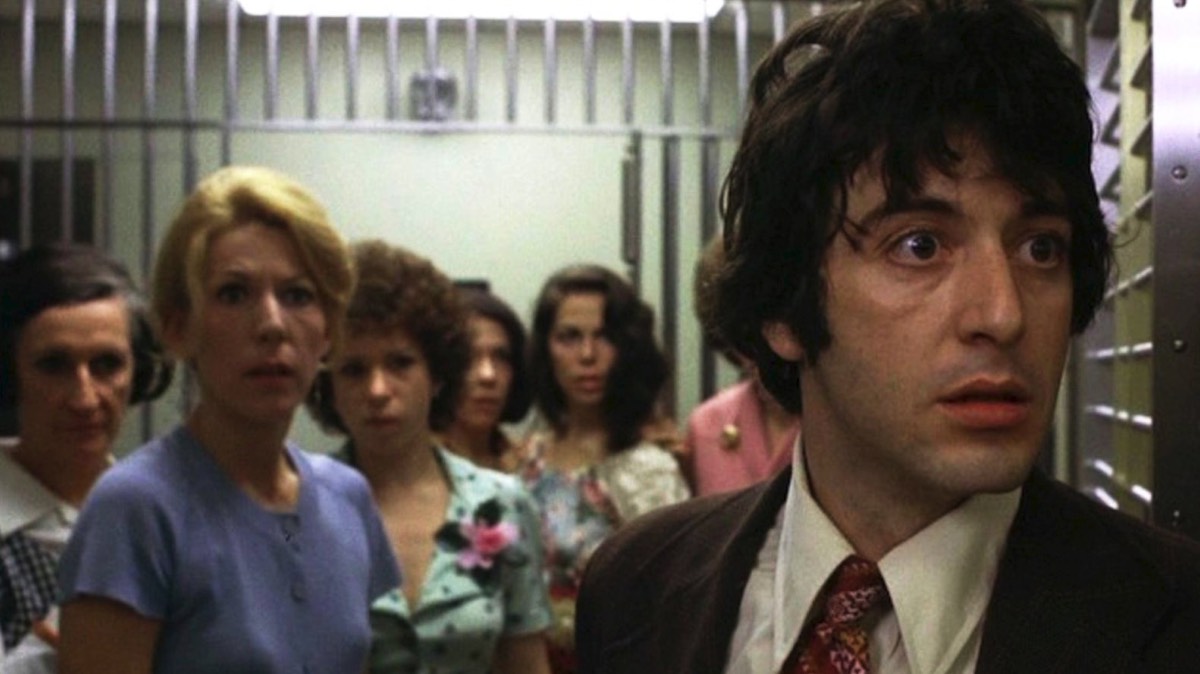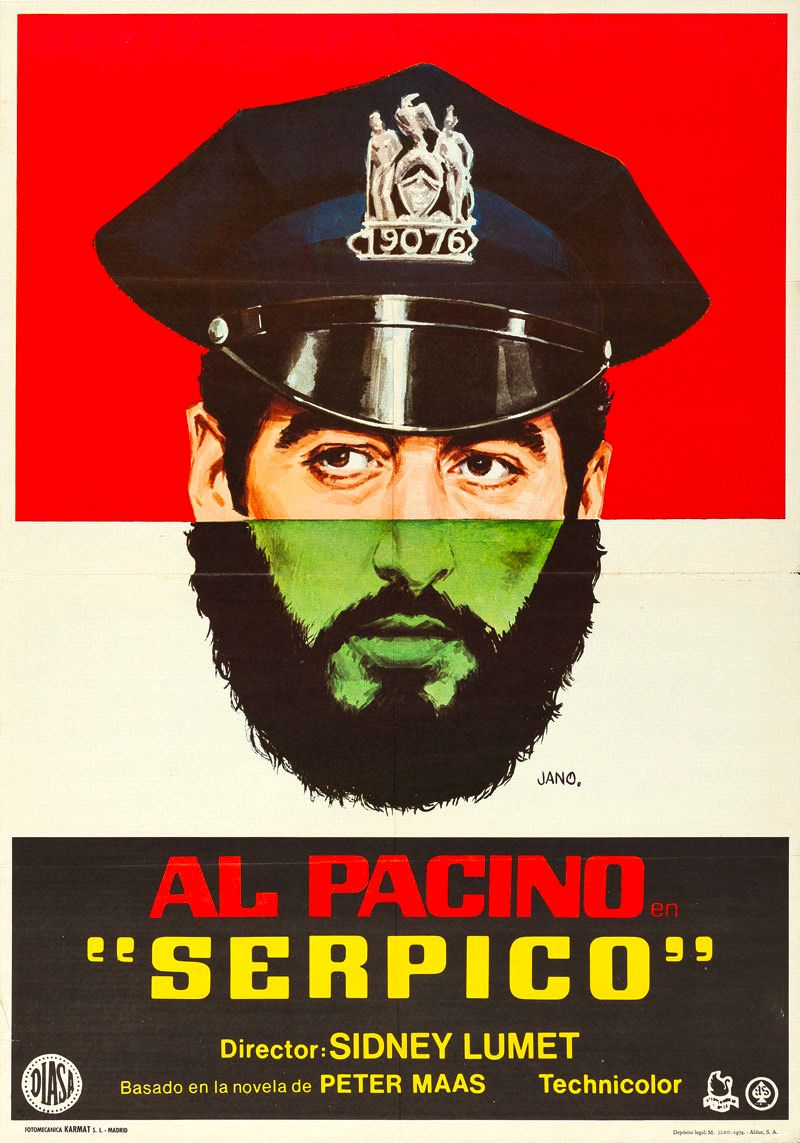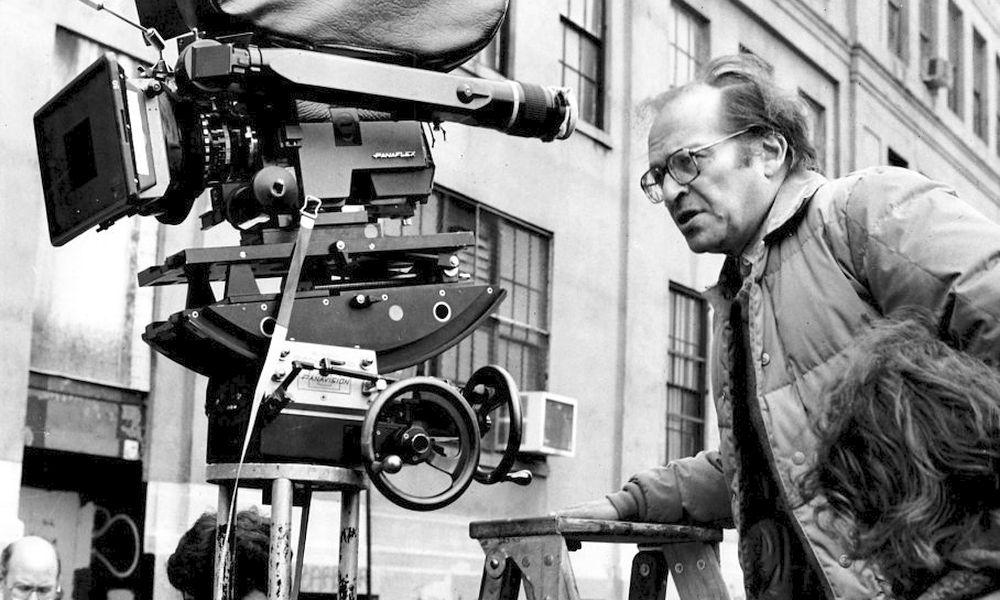"Whilst the narratives of the majority of his films are involved with conflict, it is the resultant tension that Lumet uses to heighten dramatic effect, and he underpins this with a roaming camera that observes the events from without. This work is often an examination of a hidden and corrupt world." - Robert Edgar-Hunt & Frankie Good (Contemporary North American Film Directors, 2002)
Sidney Lumet
Director / Screenwriter / Producer
(1924-2011) Born June 25, Philadelphia, Pennsylvania, USA
Top 250 Directors
(1924-2011) Born June 25, Philadelphia, Pennsylvania, USA
Top 250 Directors
Key Production Countries: USA, UK
Key Genres: Drama, Police Drama, Thriller, Crime, Courtroom Drama, Family Drama, Comedy Drama, Ensemble Film, Urban Drama, Crime Comedy, Docudrama, Psychological Thriller
Key Collaborators: Andrzej Bartkowiak (Cinematographer), Philip Rosenberg (Production Designer), Boris Kaufman (Cinematographer), Sean Connery (Leading Actor), Tony Walton (Production Designer), Jack Warden (Leading Actor), Burtt Harris (Producer), Ralph Rosenblum (Editor), Quincy Jones (Composer), Oswald Morris (Cinematographer), Andrew Mondshein (Editor), Dede Allen (Editor)
Key Genres: Drama, Police Drama, Thriller, Crime, Courtroom Drama, Family Drama, Comedy Drama, Ensemble Film, Urban Drama, Crime Comedy, Docudrama, Psychological Thriller
Key Collaborators: Andrzej Bartkowiak (Cinematographer), Philip Rosenberg (Production Designer), Boris Kaufman (Cinematographer), Sean Connery (Leading Actor), Tony Walton (Production Designer), Jack Warden (Leading Actor), Burtt Harris (Producer), Ralph Rosenblum (Editor), Quincy Jones (Composer), Oswald Morris (Cinematographer), Andrew Mondshein (Editor), Dede Allen (Editor)
"Trained in television, immersed in theatre and often inspired when working with leading acting talent, Sidney Lumet's filmography - a variable but impressive forty films -demonstrates the value of collaborative creativity and professional production. He deserves to be recognized as one of the greatest social chroniclers of his native New York... Since Q&A (1990), the quality of the still-prolific Lumet's work has failed to match that of his glory days, but he remains an industry elder of compelling reputation." - Richard Armstrong (The Rough Guide to Film, 2007)
"Although Sidney Lumet has applied his talents to a variety of genres (drama, comedy, satire, caper, romance, and even a musical), he has proven himself most comfortable and effective as a director of serious psychodramas and was most vulnerable when attempting light entertainments. His Academy Award nominations, for example, have all been for character studies of men in crisis, from his first film, Twelve Angry Men, to The Verdict." - Stephen E. Bowles (International Dictionary of Films and Filmmakers, 1991)

Dog Day Afternoon (1975)
"At its best, Lumet's direction is efficiently vehicular but pleasantly impersonal... When his subjects are responsible, as in Long Day's Journey Into Night, his services are valuable. In most other instances, only his innate good taste saves him from utter mediocrity... Lumet shows no sign of ever rising above the middle-brow aspirations of his projects to become the master rather than the mimic of the current trend away from Hollywood." - Andrew Sarris (The American Cinema, 1968)
"Sidney Lumet left an immense body of work behind him when he died in 2011. In the 50-year stretch from his first feature to his last, he racked up a total of 44 films (which is to say nothing of the dozens of hours of television he also directed, at the beginning and end of his career). To anyone approaching the Lumet catalogue fresh, such volume alone would be intimidating. Equally imposing, though, is the director’s reputation as an American master. Lumet churned out work, but it wasn’t as a journeyman. Even if stylistically his stamp wasn’t always obvious, Lumet carried strong thematic concerns through all of his films, while he was forged by early experiences in theatre (acting then directing on Broadway) and television (directing on a production line of mostly live TV) into both premier actor’s director and well-oiled technician of the moving image. At his best, Lumet made essential films, the kind now counted in the canon of great American cinema." - Brogan Morris (BFI, 2024)
"Sidney Lumet achieved critical and commercial success with his first film, 12 Angry Men (1957), which established his credentials as a liberal director who was sympathetic to actors, loved words and worked quickly. For the bulk of his career, he averaged a film a year, earning four Oscar nominations along the way for best director… It is arguable that, had he not been so prolific, Lumet's critical reputation would have been greater. Certainly, for every worthwhile film there was a dud, and occasionally a disaster, to match it. But Lumet loved to direct and he was greatly esteemed by the many actors – notably Al Pacino and Sean Connery – with whom he established a lasting rapport." - Brian Baxter (The Guardian, 2011)
"Given the breadth of Lumet’s oeuvre, it’s debatable whether or not he has a distinctive, recognisable style. The canon encompasses such a large canvas, it is impossible to say whether or not his films are instantly recognizable. There are, however, trademark characteristics: gritty New York urban realism, dynamic and snappy dialogue coupled with frequent collaborations with the best actors and writers in the business." - William Blick (Senses of Cinema, 2021)
"This American film-maker used to be my favourite director. I was ecstatic over 12 Angry Men, impressed by The Pawnbroker and trampled on by The Hill; and thought The Deadly Affair about the best thriller of its decade. Such worship makes it all the more difficult to be objective, but I think disillusionment started about The Group, with its ragbag of disparate elements which Lumet made, as with many of his later films, so dislikeable as to alienate one from the movie itself." - David Quinlan (Quinlan's Film Directors, 1999)
"He excels in the deployment of actors - Peter Finch in Network, Al Pacino in Serpico and Dog Day Afternoon - as characters caught up in moral conflicts or facing up to evil and madness." - The Illustrated Who's Who of the Cinema, 1983
"One of the 'young guard' of film directors who emerged from the ranks of television and revitalised the American screen in the late 1950s. A fairly prolific film-maker, he is at his best dealing with claustrophobic situations and characters at breaking point, very much in key with his television training… Lumet made the switch from television to films, along with John Frankenheimer, Franklin Schaffner and Martin Ritt. His first film, based on a television play, was Twelve Angry Men (1957), in which he achieved an extremely cinematic drama entirely within the confines of one set, a jury conference room." - Margaret Hinxman (The International Encyclopedia of Film, 1972)
"A prolific director of varied and variable material, Sidney Lumet all too often displays the thumping theatricality and half-baked seriousness of his origins in television drama. But occasionally, especially when dealing with the subject of urban crime, he has created a chilling, corrupt and seemingly chaotic world, notable for convincing characters and the detail of his observations." - Geoff Andrew (The Film Handbook, 1989)
"Repression and its explosive effects have been explored by Lumet. He makes social statements in comedies and dramas that are unusually tense and pulsating." - William R. Meyer (The Film Buff's Catalog, 1978)
"For any director with a little lucidity, masterpieces are films that come to you by accident." - Sidney Lumet
Selected Filmography
{{row.titlelong}}
GF Greatest Films ranking (★ Top 1000 ● Top 2500)
21C 21st Century ranking (☆ Top 1000)
T TSPDT N 1,000 Noir Films
R Jonathan Rosenbaum S Martin Scorsese
21C 21st Century ranking (☆ Top 1000)
T TSPDT N 1,000 Noir Films
R Jonathan Rosenbaum S Martin Scorsese
Sidney Lumet / Favourite Films
The Best Years of Our Lives (1946) William Wyler, Fanny and Alexander (1982) Ingmar Bergman, Fellini's Roma (1972) Federico Fellini, The Godfather (1972) Francis Ford Coppola, The Grapes of Wrath (1940) John Ford, Intolerance (1916) D.W. Griffith, The Passion of Joan of Arc (1928) Carl Theodor Dreyer, Ran (1985) Akira Kurosawa, Singin' in the Rain (1952) Stanley Donen & Gene Kelly, 2001: A Space Odyssey (1968) Stanley Kubrick.
Source: Sight & Sound (2002)
The Best Years of Our Lives (1946) William Wyler, Fanny and Alexander (1982) Ingmar Bergman, Fellini's Roma (1972) Federico Fellini, The Godfather (1972) Francis Ford Coppola, The Grapes of Wrath (1940) John Ford, Intolerance (1916) D.W. Griffith, The Passion of Joan of Arc (1928) Carl Theodor Dreyer, Ran (1985) Akira Kurosawa, Singin' in the Rain (1952) Stanley Donen & Gene Kelly, 2001: A Space Odyssey (1968) Stanley Kubrick.
Source: Sight & Sound (2002)
Sidney Lumet / Fan Club
George Clooney, Miwa Nishikawa, Tata Amaral, Akin Omotoso, John Cameron Mitchell, Edward Copeland, Roger Ebert, David Stratton, Frank Darabont, Christopher McQuarrie, Cyrus Frisch, Bruce Robinson.
George Clooney, Miwa Nishikawa, Tata Amaral, Akin Omotoso, John Cameron Mitchell, Edward Copeland, Roger Ebert, David Stratton, Frank Darabont, Christopher McQuarrie, Cyrus Frisch, Bruce Robinson.
"Fan Club"
These film critics/filmmakers have, on multiple occasions, selected this director’s work within film ballots/lists that they have submitted.
These film critics/filmmakers have, on multiple occasions, selected this director’s work within film ballots/lists that they have submitted.


